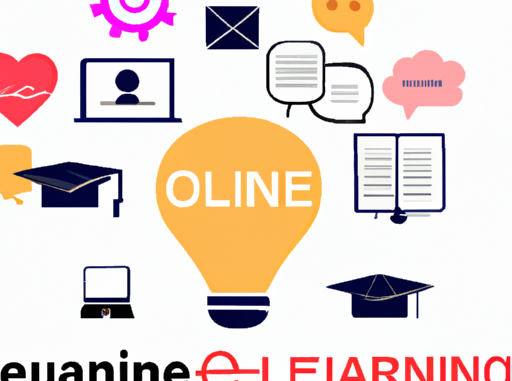
The Future of Online Education: Innovations and Best Practices for Effective Learning
Introduction
Online education has undergone rapid transformation, driven by technological advancements and changing societal needs. The COVID-19 pandemic significantly accelerated this transition, pushing educators, students, and institutions to adapt quickly to remote learning environments. This article explores the future of online education and outlines innovations and best practices that can enhance the effectiveness of learning in the digital age.
Technological Innovations
1. Artificial Intelligence (AI) and Machine Learning
AI and machine learning are set to revolutionize online education. These technologies can personalize learning experiences by analyzing student data to provide customized content, identify areas needing improvement, and offer real-time feedback. AI-powered chatbots can assist students by answering questions and providing support 24/7, ensuring that help is always available.
2. Virtual and Augmented Reality (VR and AR)
VR and AR technologies offer immersive learning experiences that can make complex subjects more accessible. For instance, medical students can practice surgeries in a virtual environment, while history students can explore ancient civilizations through AR. These technologies make learning interactive and engaging, which can improve retention and understanding.
3. Gamification
Incorporating game elements into online education can make learning more engaging and motivating. Gamification strategies, such as leaderboards, badges, and interactive quizzes, encourage students to participate actively and achieve learning milestones. This approach can be particularly effective in keeping younger students engaged.
Best Practices for Effective Online Learning
1. Interactive Content
To maintain student engagement, online courses should include a mix of multimedia content, such as videos, podcasts, interactive simulations, and quizzes. Interactive content helps in breaking the monotony and provides multiple avenues for students to grasp complex concepts.
2. Flexible Learning Paths
One of the significant advantages of online education is the flexibility it offers. Allowing students to learn at their own pace and choose their learning paths can accommodate different learning styles and schedules. This flexibility is particularly beneficial for adult learners who may be balancing education with work and family responsibilities.
3. Collaborative Learning
Collaboration is a crucial component of effective learning. Online platforms should facilitate group projects, discussion forums, and peer reviews to foster a sense of community and collaboration among students. Tools like breakout rooms in video conferencing software can simulate group work in a virtual environment.
4. Regular Assessments and Feedback
Regular assessments and timely feedback are essential for monitoring student progress and identifying areas for improvement. Online platforms can use automated grading systems for instant feedback on quizzes and assignments, while instructors can provide personalized feedback on more complex assessments.
5. Support and Resources
Providing robust support services is vital for the success of online education. Institutions should offer technical support, academic advising, and mental health resources to ensure that students have the necessary support to succeed. Additionally, training for educators on best practices for online teaching can improve the overall quality of education.
Conclusion
The future of online education looks promising, with numerous technological innovations paving the way for more engaging, personalized, and effective learning experiences. By adopting best practices such as interactive content, flexible learning paths, collaborative learning environments, regular assessments, and robust support services, educators can ensure that online education meets the diverse needs of all students. As we continue to navigate the digital age, these innovations and practices will be crucial in shaping a more inclusive and effective educational landscape.
PhDr. Pavel Bartoš, LL.M., DBA (Evropská akademie vzdělávání / European Academy of education)
Leave a Reply